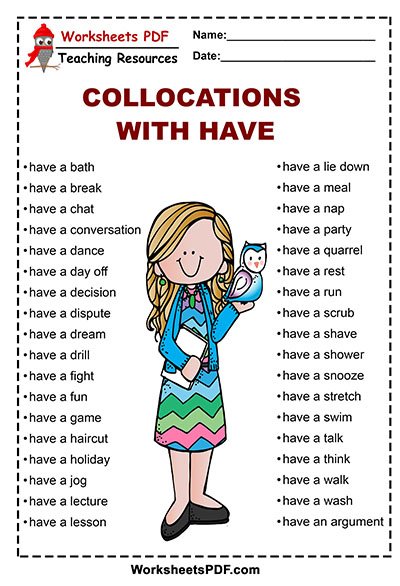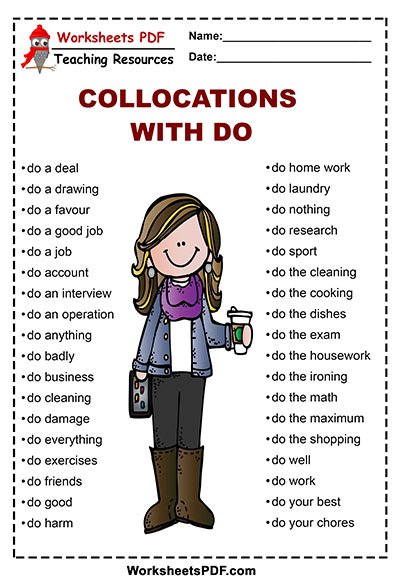Collocations are one of the parts of English Grammar that is hardest to catch when you start learning. The good news is that it gradually assimilates naturally over time. The bad news is that, meanwhile, it can lead to very funny mistakes. We tell you what collocations are and why you should pay attention to them.
What is a collocation?
When words are used regularly together, rules are created about their use not for grammatical reasons but for the simple association. “Black and white” (black and white), for example, appears in that order by placement; always used that way and put it upside down “white and black” (black and white) seems wrong.
For the same reason, “we make a mistake” (we make a mistake) or “do a test” (we make a test). In these examples, the reason for using these verbs is that we always do it in the same way: this is collocation or “placement”.
The knowledge of the placements is vital for the correct use of the language and for the adequate translation of a text from Spanish to English, since a grammatically correct sentence may seem “rare” if the placement preferences are ignored.
How to memorize collocations
Another problem to learn collocations is that they do not follow a standard and must be learned by heart. What can you do to learn these details that will make you sound like a real native? Very easy:
Point and study the vocabulary in context. You will learn collocations without realizing it.
Take note of your mistakes. Every correction you receive in class is a very valuable lesson, take advantage of it!
Listen and learn from your teachers, movies and series, radio … not only the written texts have information for you, being exposed to spoken English will make you better your level of English.
You already know the most important thing about collocations, now it’s time to get to work. Almost all the texts that you find are going to have more than one so … pay attention!
Why learn collocations?
You will sound more natural and they will understand you more easily. You will express yourself in a much more similar way to how a native English speaker expresses himself.
You will have alternative and richer ways to express yourself in English.
It is easier for our brains to learn like this. It is easier for our brains to remember sets of words than single words.
If you are preparing an English test, placements can make the difference between passing the exam or not. In fact, it is rumored that they are the protagonists in the Cambridge Advanced exam.
Types of collocation
The grammatical collocations result from the combination between the main word (name, adjective or verb) plus a preposition, or to + infinitive, or that + clause. Linguists speak of 8 types of grammatical placements:
- Noun + preposition: apathy towards, dissatisfaction with, differences with, the reason for …
- Noun + to-infinitive: I felt the urge to do it, It was a pleasure to see you, they made an attempt to do it.
- Noun + that clause: We reached an agreement that she would come with us.
- Preposition + noun: by chance, at random, in pain.
- Adjective + preposition: keen on sports, fond of music, hungry for knowledge, angry at the children.
- Adjective + to-infinitive: it’s nice to be here, it’s necessary to work on that issue.
- Adjective + that clause: They were afraid that they would not win the match.
Different verb patterns in English (verb + inf) She began to cry, (verb + bare infinitive) we must do it.
Lexical collocations is a type of construction where a verb, name, adjective or adverb forms a predictable connection with another word:
- Noun + Noun: a pang of guilt, a piece of advice.
- Adverb + Adjective: terribly excited, unduly pessimistic
- Adjective + Noun: merry Christmas, best regards
- Noun + Verb: cats meow, alarms go off.
- Verb + Noun: keep an eye
- Verb + Expression With Preposition: apply for a job
- Verb + Adverb: drive dangerously, research thoroughly
Common Collocations

Collocations with HAVE
Enjoy the following worksheet where we collect all the collocations with have. Do not forget to join our facebook group.

Collocations with DO
Enjoy the following worksheet where we collect all the collocations with DO. Do not forget to join our facebook group.

